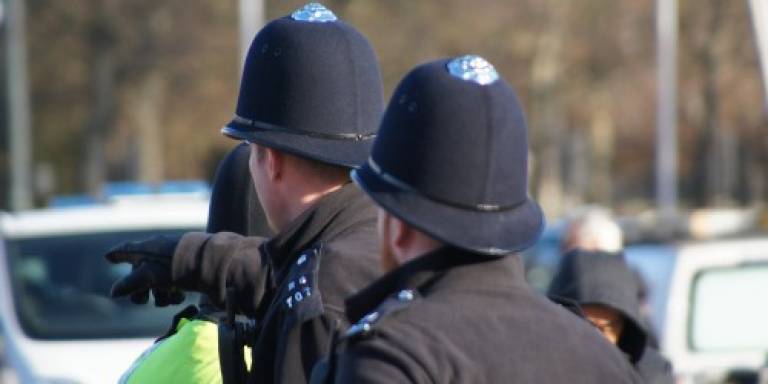
- Does Stop and Search Deter Crime? Evidence from Ten Years of London-Wide Data
People involved
Matteo Tiratelli, Paul Quinton, Ben BradfordProject summary
In this project, we used ten years of police, crime and other data from London to investigate the potential effect of stop and search on crime. Using lagged regression models and a natural experiment, we show that the effect of stop and crime is likely to be marginal, at best. While there is some association between stop and search and crime (particularly drug crime), claims that this is an effective way to control and deter offending seem misplaced. We close the discussion by suggesting that, first, in a legal sense the key issue is that each and every stop should be justified in itself, not in that it has some putative wider effect on crime, and, second, in a sociological sense, our findings support the idea that stop and search is a tool of social control widely defined, not crime-fighting, narrowly defined.Partner Organisations
College of PolicingPlanned outputs
Article in the British Journal of Criminology- Now you see it, now you don’t: On the (in)visibility of police stop and search in Northern Ireland
People involved
John Topping, Ben BradfordProject summary
Police stop and search practices have been subject to voluminous debate for over 40 years in the United Kingdom. Yet critical debate related to the use of ‘everyday’ stop and search powers by the Police Service of Northern Ireland (PSNI) has, despite the hyper-accountable policing system of Northern Ireland, been marked by its absence. This article presents the first ever analysis of PSNI’s use of PACE-type powers (Police and Criminal Evidence (NI) Order 1989) – currently used at a higher rate and with poorer outcomes compared to the rest ofthe UK. While it can only be considered as an elusive power, about which detailed research evidence is markedly lacking, stop and search in Northern Ireland seems to serve as a classificatory tool for PSNI to control mainly young, socio-economically marginal male populations. The article provides new theoretical insight into stop and search as a simultaneous overt and covert practice, and speaks to wider issues of mundane police power – and practice – within highly contested and politically fractured contexts.
Partner organisations
Queens University BelfastPlanned outputs
Article in Criminology and Criminal Justice- Routine Activities and Proactive Police Activity: A Macro-scale Analysis of Police Searches in London and New York City
People involved
Matt Ashby, Lisa TompsonProject summary
This paper explored how city-level changes in routine activities were associated with changes in frequencies of police searches using six years of police records from the London Metropolitan Police Service and the New York City Police Department. Routine activities were operationalised through selecting events that potentially impacted on (a) the street population, (b) the frequency of crime or (c) the level of police activity. OLS regression results indicated that routine activity variables (e.g. day of the week, periods of high demand for police service) can explain a large proportion of the variance in search frequency throughout the year. A complex set of results emerged, revealing cross-national dissimilarities and the differential impact of certain activities (e.g. public holidays). Importantly, temporal frequencies in searches are not reducible to associations between searches and recorded street crime, nor changes in on-street population. Based on the routine activity approach, a theoretical police-action model is proposed.Planned outputs
Article in Justice Quarterly- Stop and Search in London
People involved
Matt AshbyProject summary
This project produces quarterly reports on how police in London use their powers to stop and search people. These reports help Londoners and police understand how police use these controversial powers.Planned outputs
Stop and Search in London: July to September 2020
 Close
Close

